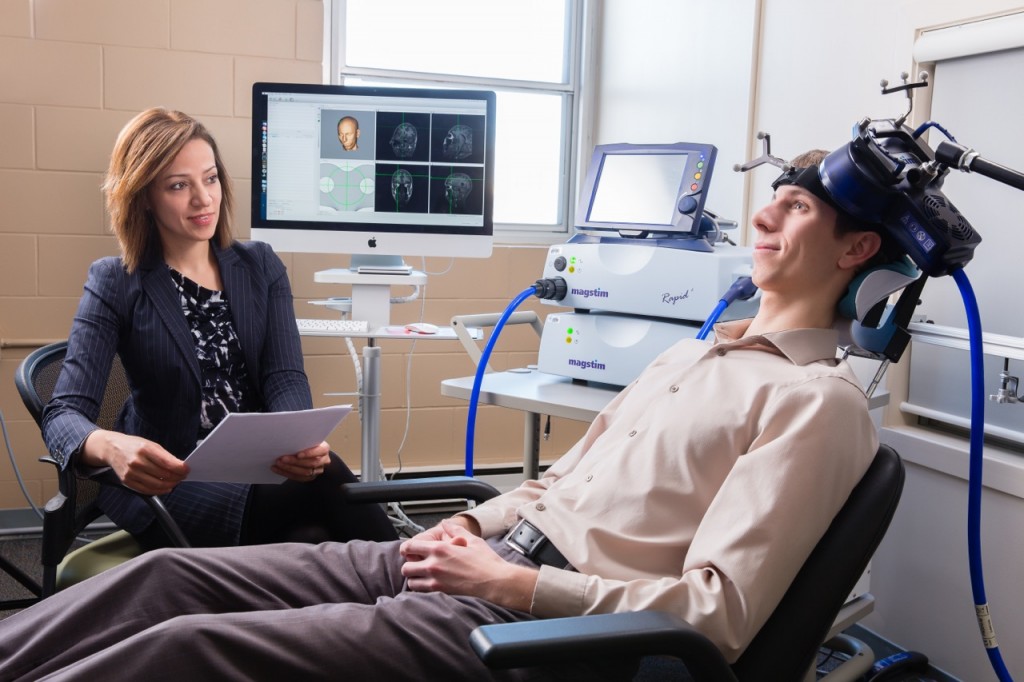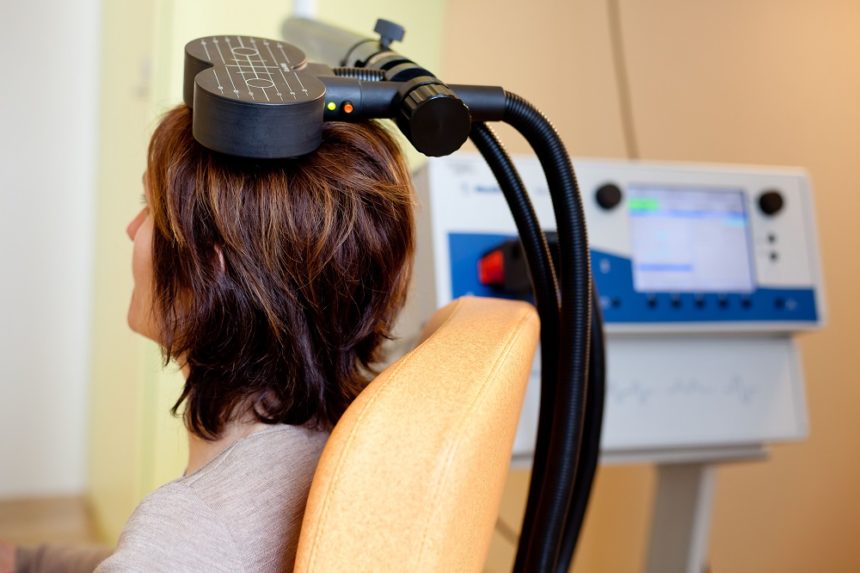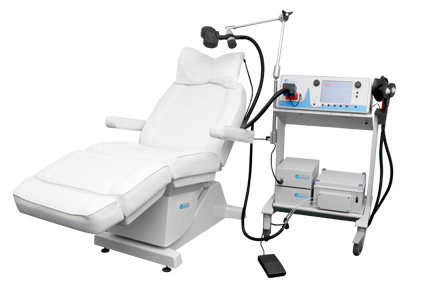Low Frequency rTMS for Treatment-Resistant Auditory Hallucinations in Schizophrenia
Highlights from Posters Presented at the Society of Biological Psychiatry Meeting, April 27-29, 2023 in San Diego:
J. Brunelin gave patients “30 sessions of 1 Hz rTMS (repetitive Transcranial magnetic stimulation) over 3 weeks (360 pulses per sessions delivered with 60 sec ‘on’ and 30 sec ‘off’ at 110% of the resting motor threshold, 2 sessions per day). Stimulations were applied over the left temporoparietal junction.” Severity of auditory verbal hallucinations decreased (p=0.003) including in the 9 patients included with clozapine-resistant symptoms.
Intermittent theta burst magnetic stimulation (iTBS) is FDA approved.
As reported in Psych. News:?The Food and Drug Administration (FDA) has cleared the SAINT Neuromodulation System for the treatment of refractory depression in adults, Magnus Medical Inc. (the manufacturer of the product)?announced?Tuesday. SAINT is a?modified form of transcranial magnetic stimulation?(TMS) that compresses weeks of conventional TMS therapy into just five days”. ?Regular TMS takes 20-30 minutes per daily session while iTBS takes about 5 minutes and thus can be applied many times in a single day. ?”As demonstrated in a clinical trial?published?in?The American Journal of Psychiatry, Montgomery-Åsberg Depression Rating Scale (MADRS) scores dropped by 62% among participants following five days of SAINT stimulation compared with a 14% drop among participants receiving sham stimulation. These improvements were sustained over a four-week follow-up.” ?The method was developed by Nolan Williams and he used MRI to best target the site of stimulation
Good Outcomes Among Patients with Major Depressive Disorder Treated with Transcranial Magnetic Stimulation in a Large Study

At the 2021 meeting of the Society of Biological Psychiatry (SOBP), researcher Harold Sackeim and colleagues reported on data collected from patients in clinical treatment for major depression who received transcranial magnetic stimulation (TMS) at 103 practice sites. A total of 5,010 depressed patients were included in the intent-to-treat sample, and 3,814 completed the study, meaning that they either reached remission or were treated at least 20 times and went through a final assessment. “Response (58–83%) and remission (28–62%) rates were notably high across self-report and clinician-administered assessments,” and women had better outcomes than men. Sackeim and colleagues concluded, “Strong efficacy and the low side effect and medical risk profile suggest that TMS be evaluated as a first-line treatment for [major depressive disorder].”
Better One-Year Clinical Outcomes After Four Weeks of Theta Burst Stimulation for PTSD Than After Two Weeks

In a 2019 article in the journal Neuropsychopharmacology, Nicholas J. Petrosino and colleagues described findings from one year of follow-up with veterans suffering from post-traumatic stress disorder (PTSD) who received intermittent theta burst transcranial magnetic stimulation (iTBS) in a four-week crossover study.
In the first two weeks of the study, half of the 50 participants (who were mostly male and had an average age of 51) received iTBS while the others were given a sham procedure. Then all the participants received iTBS on an open (non-blind) basis for two more weeks.
At one month, those who had received four total weeks of iTBS had better outcomes than those who had received only two weeks of active iTBS. These results were published in the American Journal of Psychiatry in 2019 in an article by Noah S. Philip and colleagues.
The researchers went on to look at longer-term outcomes, namely time until relapse (a major event such as a re-hospitalization or suicide). After one year, those who received four weeks of iTBS went 9 to 11 months without relapsing (296.0 days ± 22.1), while those who received only two weeks of iTBS went 5 to 7 months before relapsing (182.0 days ± 31.9).
It seems that more iTBS may be better than less iTBS for PTSD in both the short and long term.
New TMS System Approved for Depression
In August the US Food and Drug Administration (FDA) approved the marketing of the MagVita TMS Therapy system from the company MagVenture. This machine can be used to provide transcranial magnetic stimulation (TMS) to patients with major depression that has not responded to antidepressant drugs. A TMS system uses magnets placed close to the head to stimulate the brain.
There are several existing systems that can provide TMS. The Neuronetics Neurostar TMS machine was the first one to be approved, in 2008. Then came Brainway’s Deep TMS machine. Now MagVenture says that the benefits of their new system include a simple design, low operating costs, no disposable components, and safety and efficacy rates comparable to those of other FDA-approved TMS devices.
Treatment with the MagVita system is typically provided five times per week for a duration of six weeks.
As TMS treatment becomes available to more patients, coverage by insurance companies is also increasing, but is still not guaranteed for patients in the US.


